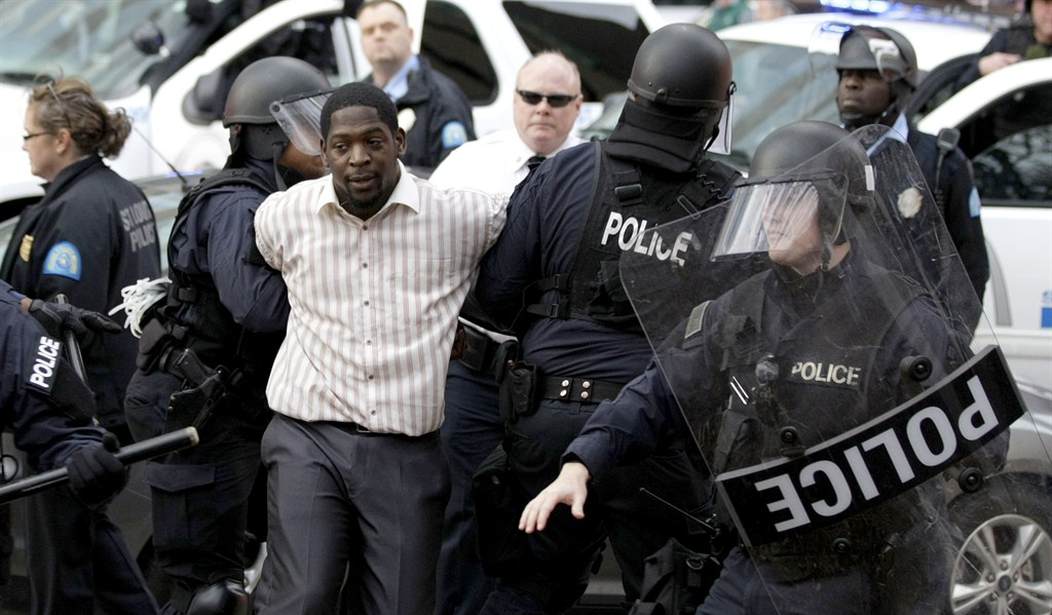In the medical profession, there is the admonition primum non nocere, the Latin expression for "first, do no harm." In order not to do harm, at the minimum, requires accurate diagnostics. Suppose a patient presents with abdominal pains, and the physician diagnoses it as caused by the patient's ingrown toenails. If that isn't the cause, the physician can spend all the resources he wants treating the patient's ingrown toenails and not remedy the patient's abdominal pains.
The decency of accurate diagnosis should be given to analyzing the problems of a large segment of the black community. Very often, major problems are erroneously seen as being caused by racial discrimination. No one argues that racial discrimination does not exist or does not have effects. The question that's relevant to policy, as well as resource allocation, is: How much of what we see is caused by discrimination?
Let's apply this question to the tragic state of black education. According to the National Assessment of Educational Progress, sometimes called the nation's report card, the average black 12th-grader has the academic achievement level of the average white seventh- or eighth-grader. In some cities, there's even a larger achievement gap. If, as some people assert, this is the result of racially discriminatory education funding, then demonstrations, legal suits and other measures might be taken to promote funding equity. Also, resources could be spent to politically organize and elect black people as mayors, city councilors and school superintendents.
If the cause of the black/white achievement gap has little to do with racial discrimination, then focusing on discrimination will lead us to ignore or downplay factors that do affect black education. In some school districts, 700 teachers are annually assaulted and threatened. At one time, Philadelphia employed 500 school police officers. Similar stories of school violence can be told in other cities with large black populations, such as Chicago, Baltimore, Detroit, Cleveland, Oakland, California, and Newark, New Jersey. How useful is it to spend resources on discrimination while allowing unsafe and chaotic educational environments to exist?
Recommended
Whether a student is black, white, orange or polka-dot and whether he's poor or rich, there are some minimum requirements that must be met in order for him to do well in school. Someone must make the student do his homework. Someone must see to it that he gets eight to nine hours of sleep. Someone has to fix him a wholesome breakfast and ensure that he gets to school on time and respects and obeys teachers. Here's my question: Which one of those basic requirements can be accomplished through a presidential executive order, a congressional mandate or the edict of a mayor, a superintendent of schools or a teacher? If those basic requirements aren't met, whatever else that is done in the name of education is for naught.
Spending more money on education is not a substitute. If it were, black academic achievement wouldn't be a problem. For example, in 2012, Washington, D.C., public schools led the nation in spending per pupil, at $29,409 (http://tinyurl.com/mpc82dq). In terms of academic performance, "the nation's report card" shows that over 80 percent of D.C.'s predominantly black eighth-graders scored either "basic" or "below basic" in reading and math. "Basic" indicates only partial mastery of the knowledge and skills fundamental for proficient work at grade level, and "below basic" means that the student doesn't even have partial mastery.
Other devastating problems that are faced by many blacks and cannot be attributed to racial discrimination are a high crime rate -- featured by a homicide victimization rate of 51 percent -- over 70 percent of blacks being born to single females and only slightly more than 30 percent of black children being raised in two-parent households.
Solutions to these truly challenging problems will not be found in the political arena or in government programs. For black politicians, civil rights leaders, the intellectual elite and others to blame racial discrimination for the problems of today is dereliction. If a medical practitioner made the same kind of incorrect diagnosis, we'd indict him for malpractice.

























Join the conversation as a VIP Member